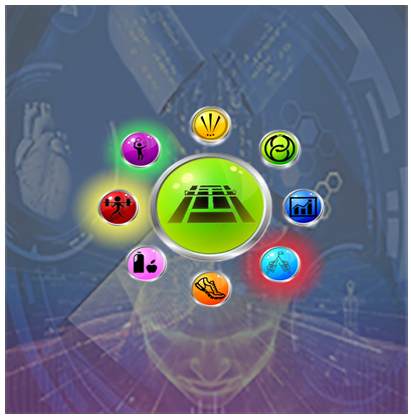DO YOU WANT THE NEXT LEVEL!

APPLICATION FOR DEVELOPING HIGHLY TECHNICAL SKILL SETS, UPTO PROFESSIONAL STANDARDS
THE NEXT GENERATION OF HUMAN DEVELOPMENT
Next Level Professional (NLP) is Better World Apps’s flagship computer application designed to map the performance and experience of various user groups. Such as Athletes, Musicians, Students of Education, Business Professionals, and any other group that looks to acquire technical skill sets. Every top coach/instructor/program in the world does what NLP does. The basis of NLP is coordinating the various skills, training, and understanding necessary to efficiently devote the time and experiences required to reach heightened levels of activity. If done with the proper balance and intent can help develop a person to a professional level.
ERICSSON’S RESEARCH HAS REVOLUTIONIZED HOW WE THINK ABOUT HUMAN ACHIEVEMENT. HE HAS FOUND THAT WHAT SEPARATES THE BEST OF US FROM THE REST IS NOT INATE TALENT BUT SIMPLY THE RIGHT KIND OF TRAINING AND PRACTICE. Joshua Foer, Moonwalking with Einstein
In collaboration with Anders Ericsson, Better World Apps has developed a leading-edge learning management platform, Next Level Pro (NLP), for anyone looking to improve their skills. The premise for NLP is bringing together the gold standard in skill development, Deliberate Practice, and online gaming/social networking experiences. A powerful tool for anyone looking to achieve their goals and dreams.
THE STORY OF NEXT LEVEL PROFESSIONAL NLP
By: Chris Rheault
I have always had a fascination with being a true professional. The idea of gentleman/woman has been deliberated in my mind many times as an air of being professional. As a young tennis player, I had hoped and dreamed of being a professional tennis player with roots established on the top collegiate team in the United States, the University of Southern California. Very few people, including friends and family, saw these as being feasible for me to accomplish. I did not have the talent, but many had said that I had heart, and this quality can take you far.
I was accepted into the University of Southern California for the Fall semester of 1996. I then proceeded to get myself on the Men’s Tennis team as a redshirt freshman/team manager. I spent three years training with some of the very best tennis players, and with many of the best athletes, in the world. In the 1996 Olympics USC would have ranked top 10 in the medal count as a country. I had a roommate and a handful of friends who went on to play professional baseball (my roommate made it to the National League Pennant championships on the Houston Astros). Some of my acquaintances/friends from this time include Reggie Bush (famous American Football player, won Super Bowl XLIV in 2010), Brian Scalabrine (NBA Basketball Player, won NBA championship in 2008), George Bastl (My Roommate who beat Pete Sampras at Wimbledon in 2002, Still a top 5 all-time upset), Andre Agassi practiced with my tennis team when I was at USC (one of my idols), Rick Leach was my coach’s son who would practice with us (number 1 professional doubles tennis player in the world at the time, one of the very best doubles players of all-time), as well as other top 50 professional tennis players, and other top athletes. By my junior year, I had improved my level from being a team manager to that of a top 6-8 player on the team. I quit this same year to focus on my architectural studies, USC has one of the best architecture schools in the world. I was fortunate to have studied under some of the most well-known architects in the world. By the time I graduated the USC Men’s tennis team won their 16th team NCAA Championship, could have had a ring if I stayed with it. My only regret in my tennis life.
A particular moment was life-changing and the basis for me becoming, arguably, one of the very best tennis coaches in New Hampshire’s history. I was a premedical student my freshman year with an emphasis on physical therapy. Somehow, I was registered for a senior-level Exercise Science class. The professor noticed I was a freshman and mentioned I could stay in the class if I wanted because I would need it to graduate. In this class, we researched and studied various theories. One of the latest and greatest studies, at this time, was “The role of deliberate practice in the acquisition of expert performance” by Anders Ericsson and others. Today this study is one of the most well-regarded and the standard in any well-regarded University for the area of Expertise. The premise states how the common thread among professionals is the time and amount of focus, “Deliberate Practice” they put into becoming a professional. This time ends up being thousands of hours of effort for highly skilled trades, including music, most athletics, business professionals, Doctors (my skin cancer doctor even knew about it and mentioned how he referenced it in his residency) and various levels of education.
Initially, I was a skeptic of this study and spent years trying to disprove it. The more I tried, the more I realized it was completely accurate and accounted for everything I saw in athletics at USC and that I researched beyond USC. Every professional I investigated in one way, or another met the criteria of this science. It became the foundation for my coaching practices. And the reason I have been so successful as a tennis coach and design/athletic consultant. I can even calculate the relationship between the number of hours of deliberate practice and the various output levels of performance in competition. This understanding allows for the accurate placement of individuals into a variety of schools/business positions.
Around 2005 I started designing a mobile app representing the Deliberate Practice model into real-time use/experience. Then in 2020 it all rapidly came together. That February, Recovering from some cancer removal allowed some quality time in designing this mobile app. I then reach out to Anders Ericsson, the scientist who developed the science that is the basis for the app. At this point, he has written books and developed more studies regarding this science. Anders Ericsson is the scientist at the forefront in this area, and any authority in this knows Anders and Deliberate Practice very well. I contacted him at Florida State University. We started to collaborate over the phone regarding my work on the app. He helped develop a mobile app that accurately represents his science and puts it into a user-friendly, organic, and natural workflow environment for people to map and track their efforts in acquiring technical skillsets. The potential is remarkable! The original app is for tennis players. This brought on Adam Peterson and Peter Arsenault into our collaboration. Together we developed a more finished and polished product. We have now conceptualized a suite of apps across many fields. Including Music, Athletics, Education, Business, Mind, and Body, as well as others.




